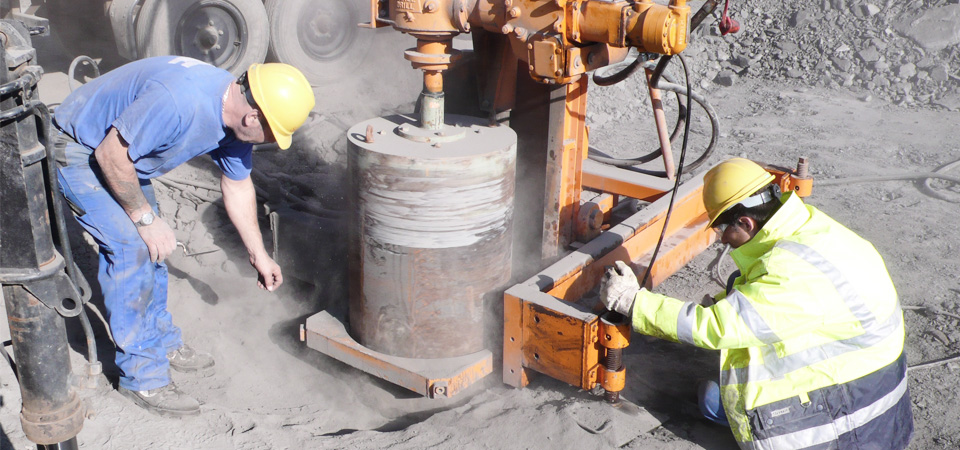Subsoil Investigations
Sampling of soil and rock material from direct exposures (pits or boreholes) is an essential part of the subsoil investigation. The focus is not only on the composition of various geomaterials but also on its state, namely density, water content and in-situ stress state. Depending on its state, a geomaterial can exhibit quite different mechanical properties.

Sampling
The determination of state requires a high sample quality, particularly for non-cohesive materials. In regard to this, the IBF has long-lasting experience and devices for undisturbed sampling. This includes offroad vehicles and drilling equipment for large-scale rock sampling.
Sounding interpretation
Penetration, cone, vane and pressiometer sounding are used in subsoil investigation to identify layers and inhomogeneities in between boreholes and also to draw conclusions for the in-situ soil state. Using special constitutive laws for soil materials we are able to back-calculate state variables from the soundings which are more reliable than those derived from empiric correlations. By this way, we can develop a subsoil model which is simplified as much as possible and though detailed as much as necessary. For example, homogeneous areas may be defined and also spatial fluctuation of parameters quantified.
The IBF has also a mobile (truck-mounted) dynamics laboratory available which is equipped for vibration, earth pressure, moisture and pore water pressure monitoring.
- “Validation of a design concept for gravity foundations of offshore wind energy converters under high-cycle loads using monitoring data of a full-scale field test“ (BMU/BMWi 0325405, 2012-2015)
- “System dynamics and long-term performance of railway undercarriage, track and substructure“, subproject „Compliance of the ballast superstructure” (DFG-SPP 1015, 1996-2002)
- “Strong earthquakes: From the basics of geosciences to engineering measures“, subproject „Nonlinear wave phenomena in fine-grained and compressive soils“ (DFG-SFB 461, 1996-2007)

